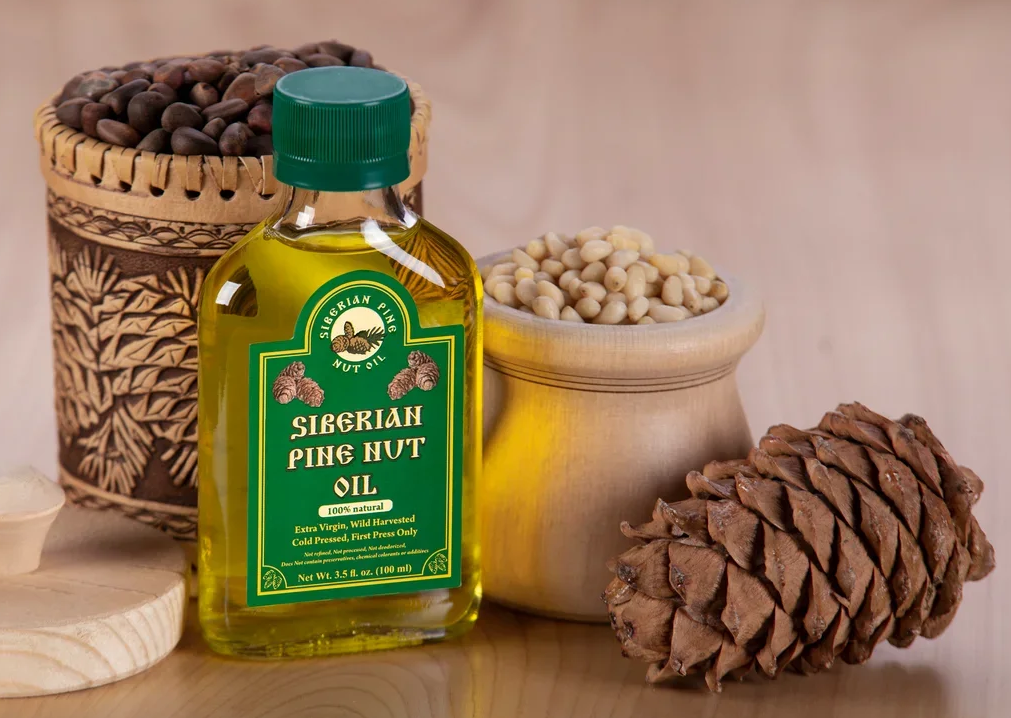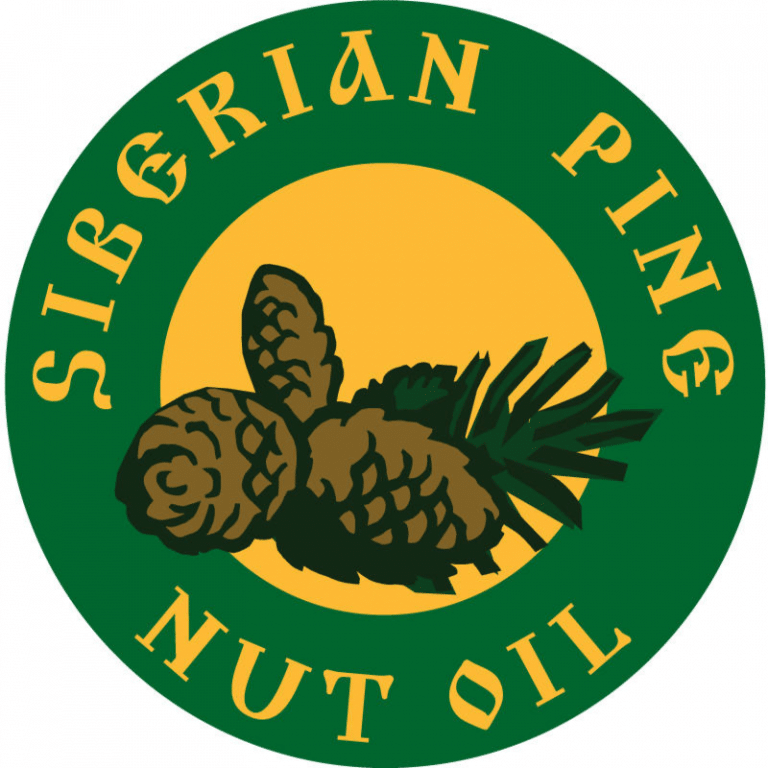Study: Bioactive Compounds of Cold Pressed Pine Nut Oil

Pine nut oil is a traditional remedy that has been used for the treatment and prevention of many diseases since time immemorial. However, studies of the properties and composition of pine nut oil are still being carried out. In June of this year, the results of the analysis of the chemical composition of cold-pressed pine nut oil were published. Scientists established that pine nut oil contains more tocopherols and more types of unsaturated fatty acids than previously thought. [1]
To study the composition of cold-pressed pine nut oil, chemical reagents and organic solvents were used, as well as refractive indices (RI) using a refractometer. The use of modern methods of analysis made it possible to obtain results that differ from the results of studies in 2009-2018.
So, scientists have found that α-tocopherol, α-tocotrienol, and γ-tocopherol are 174.48 mcg / g, 2004.65 and 485.92 mcg / g, respectively. In a study by Nasri et al., 2009, α-tocopherol and γ-tocopherol were found to be 15.34 and 1681.75 ppm, respectively, and α-tocotrienol was not investigated. Thus, the concentration of tocopherols in cold-pressed pine nut oil is higher than previously thought.
Tocopherols are essential nutrients for combating oxidative stress and, as a result, preventing many cardiovascular and neurodegenerative diseases, including Alzheimer’s disease. The study authors also emphasized that, according to their analysis and previous studies, «α-tocopherol and γ-tocopherol are higher with cold pressing than with hot pressing.»
Another category of nutrients that were studied were saturated and unsaturated fatty acids. The authors indicate that earlier analyzes of the chemical composition of pine nut oil showed the presence of 9 to 12 fatty acids. «Our study found 13 types of fatty acids, which is higher than most studies published in the literature,» they write. The predominant unsaturated fatty acid is linoleic acid (46.39%), the oil also contains oleic, pinolenic, linolenic, eicosadienoic, and other acids in a lower concentration. The unsaturated fatty acids help to get rid of excess weight, provide the necessary level of «good» cholesterol, and reduce the content of «bad». These compounds stimulate metabolic processes and strengthen the cardiovascular system.
As part of the study, the content of sterols and triacylglycerols (TAG) in pine nut oil was also analyzed. The most abundant sterol was β-sitosterol (76.15%), followed by campesterol (15.60%), sitostanol (6.46%), Δ5-D24-stigmastadionol (1.43%), and ergosterol (0.36 %). 9 types of TAG were identified and the most common TAG was found to be LLL (trilinolein) with a TAG amount of 11.5867%. Sterols and TAGs are one of the main sources of energy in the human body. Largely due to them, pine nut oil has a tonic effect.
The authors of the scientific publication draw the following conclusion: «It has been established that the amount of tocopherol and tocotrienol in cold-pressed oils is quite large compared to hot-pressed oils. Hot pressing destroys the structure of tocopherol and tocotrienol in the oil and reduces their amount. The high content of linoleic acid and tocopherol in pine nut oil enhances the nutritional value and health benefits of the oil.»
REFERENCES
[1] Erva Parıldı, Osman Kola, Neslihan Keçeli, et al. Physicochemical Characterization and Bioactive Compounds of Cold Pressed Pine Nut Oil. Authorea. June 15, 2022.
These articles come directly from researchers and are passed on to everybody. siberianpinenutoil.org assumes no liability for any content in these articles. For Educational purposes only. This information has not been evaluated by the Food and Drug Administration. This information is not intended to diagnose, treat, cure, or prevent any disease.


